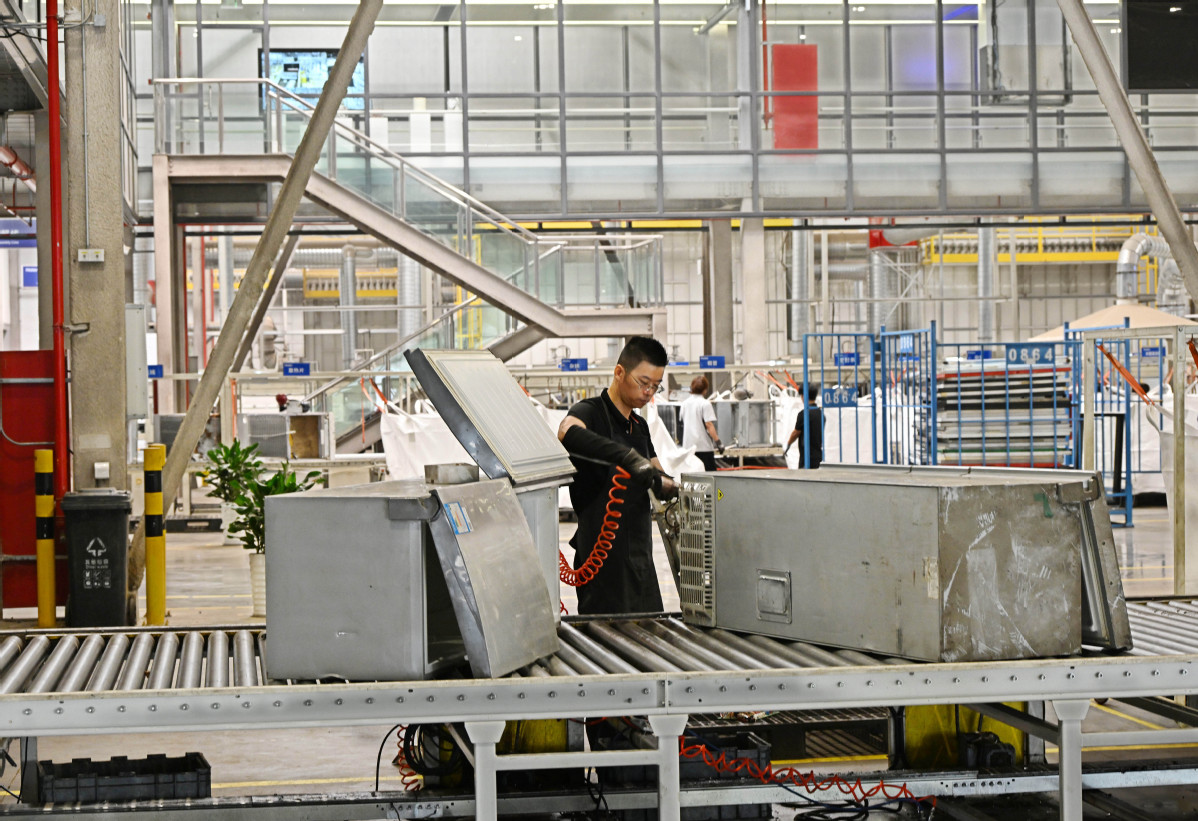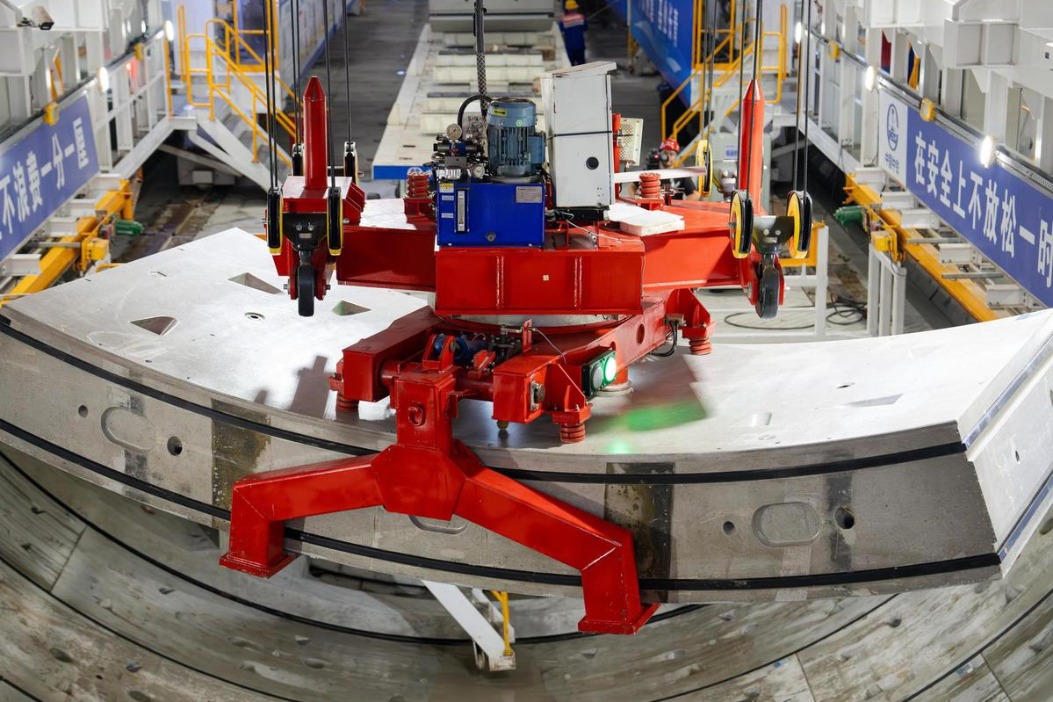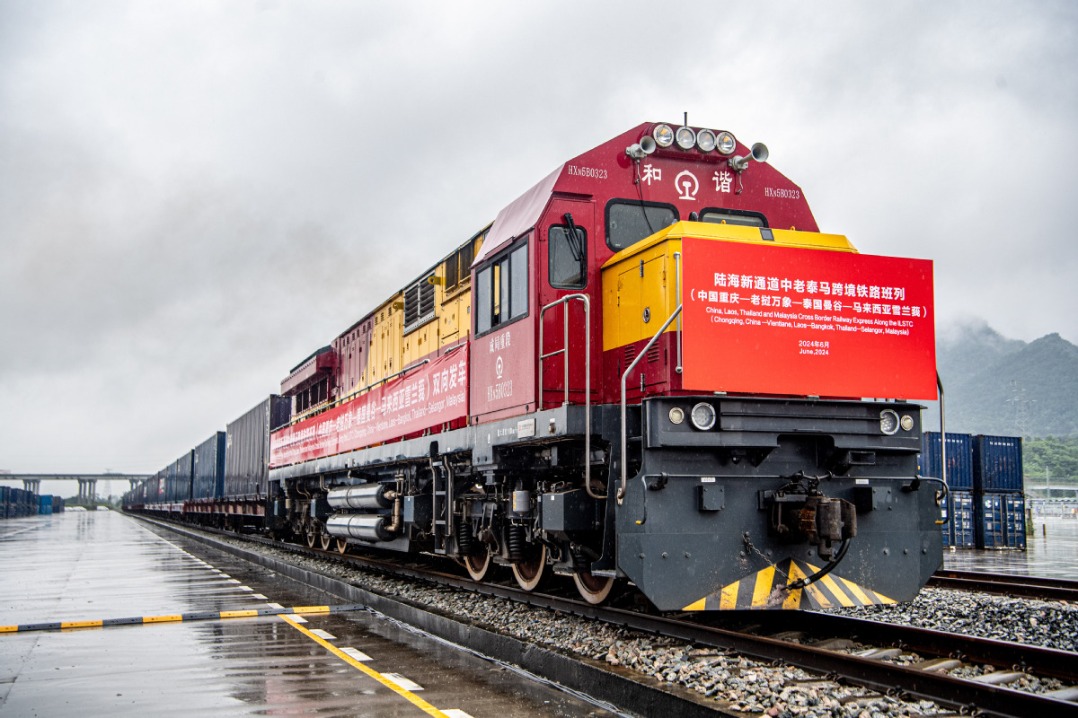Trade-in programs urge for effective recycling supply chain
Repurposing materials will lead to more sustainable economic model


As the consumer goods trade-in programs continue to make progress, they will generate a significant amount of waste materials, necessitating a concerted effort to address this challenge through recycling and circular utilization, analysts said.
By ensuring the smooth operation of a recycling supply chain, the country can not only mitigate the environmental impact of these waste streams, but also extract and repurpose the resources contained within them, contributing to a more circular and sustainable economic model, they added.
Compared to previous consumption-stimulating policies, the latest round of trade-in programs places greater emphasis on enabling residents to sell their old goods and exchange them for new products, said Bai Ming, a researcher at the Chinese Academy of International Trade and Economic Cooperation.
By prioritizing the effective management of existing goods, the government is setting the stage for residents to swap out their old goods in favor of newer, more efficient products, Bai said.
In March, the Ministry of Commerce, along with other departments, issued a plan to promote the trade-in of consumer goods, setting out key recycling targets to be achieved by 2027.
The plan calls for a doubling of scrap car recycling volumes compared to 2023 levels, a 45 percent growth in used car transaction volumes, and a 30 percent increase in waste home appliance recycling quantities.
According to a research report by GF Securities, the automotive recycling and dismantling industry is expected to reach a scale of over 1 trillion yuan ($140.5 billion) by 2025, driven by the government's policy support.
The vehicle scrapping system has long been inaccessible and inconvenient for individual consumers, said Cui Dongshu, secretary-general of the China Passenger Car Association.
Many consumers are unaware of the locations of scrapping stations, and the process often requires significant time and effort, making it far less convenient than simply selling the old car to a 4S shop and then purchasing a new one, Cui said.
Compared to the regulated dismantling facilities, many unlicensed private dismantlers operate at lower costs, offering higher scrap value prices to consumers. However, these unlicensed facilities often lack the necessary technical capabilities and environmental protection measures, leading to a range of problems, including environmental pollution, Cui added.
Auto dealers should enhance their service offerings and provide integrated services that seamlessly connect the delivery of scrap vehicles and the purchase of new cars, which will greatly improve the overall experience and incentivize more consumers to take part in the upgrade cycle, Cui said.
Waste home appliances contain a significant amount of metal and precious metal components, and their recycling costs are generally lower than extracting natural ores. As a result, the recycling and reuse of waste home appliances have direct economic and ecological value, experts said.
Xin Guobin, vice-minister of the Ministry of Industry and Information Technology, said at a news conference that the recycling and utilization rate of home appliance products, such as refrigerators, washing machines, and air conditioners, exceeded 80 percent last year.
However, complexities in the actual recycling process and the disconnect between consumer perceptions and the operational realities of recycling companies pose barriers to realizing the full potential of this resource, said Xu Junxiang, president of the China National Resources Recycling Association.
Residents often have high expectations for the residual value of their waste home appliances, but the limited number of formal recycling channels and relatively low prices offered by these outlets lead the majority of consumers to sell their old electronics to itinerant merchants, Xu said.
Around two-thirds of waste home appliances are recycled through individual collectors who go door-to-door, which increases the risk of illegal dismantling and poses potential environmental threats, Xu added.
Xu said that the government must take a comprehensive approach to strengthening the recycling infrastructure, improving consumer awareness, and incentivizing the participation of formal recycling channels to effectively tackle this challenge.
As of September, China had established around 150,000 recycling stations and approximately 1,800 large-scale sorting centers across the country, according to the National Development and Reform Commission.




































